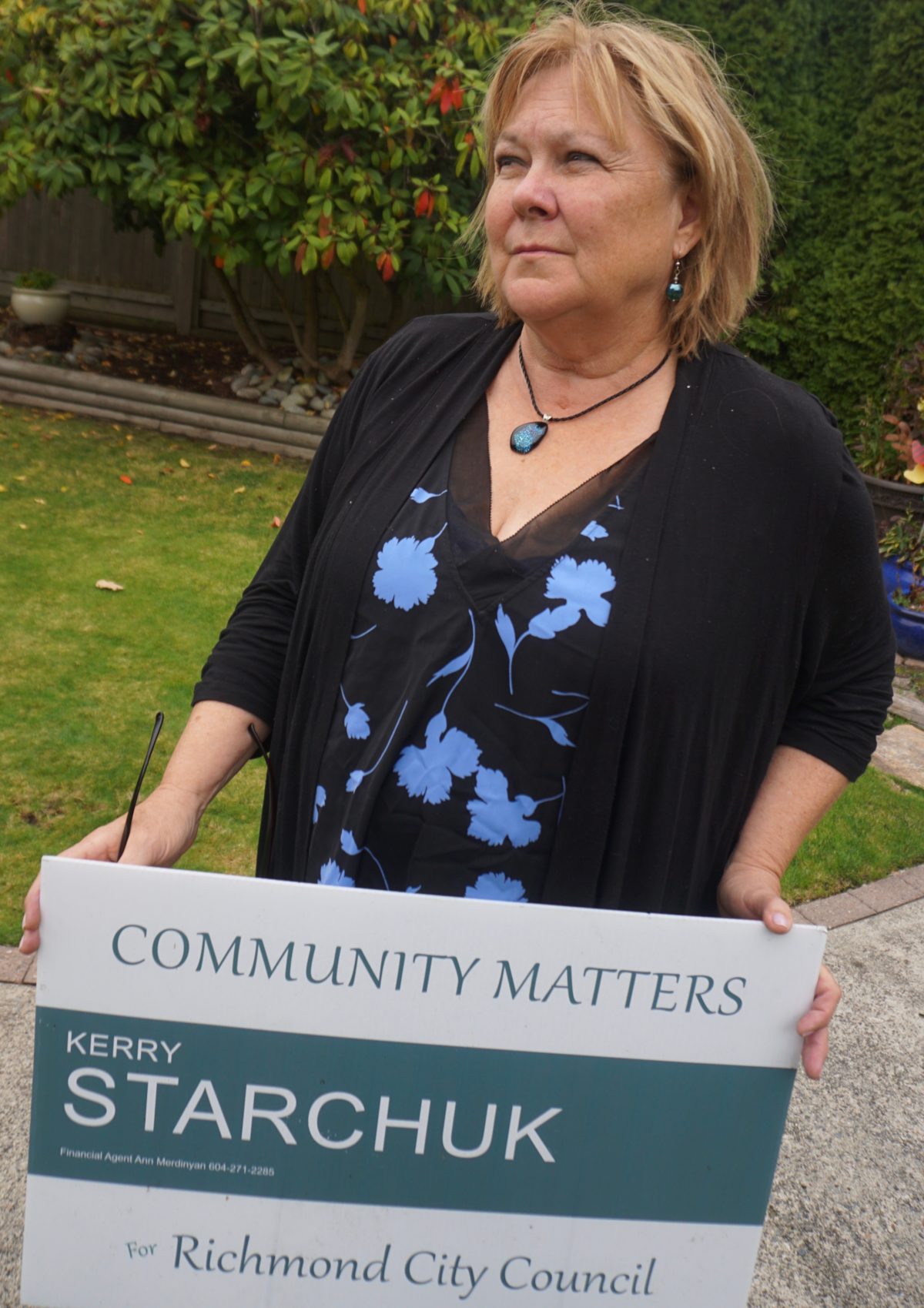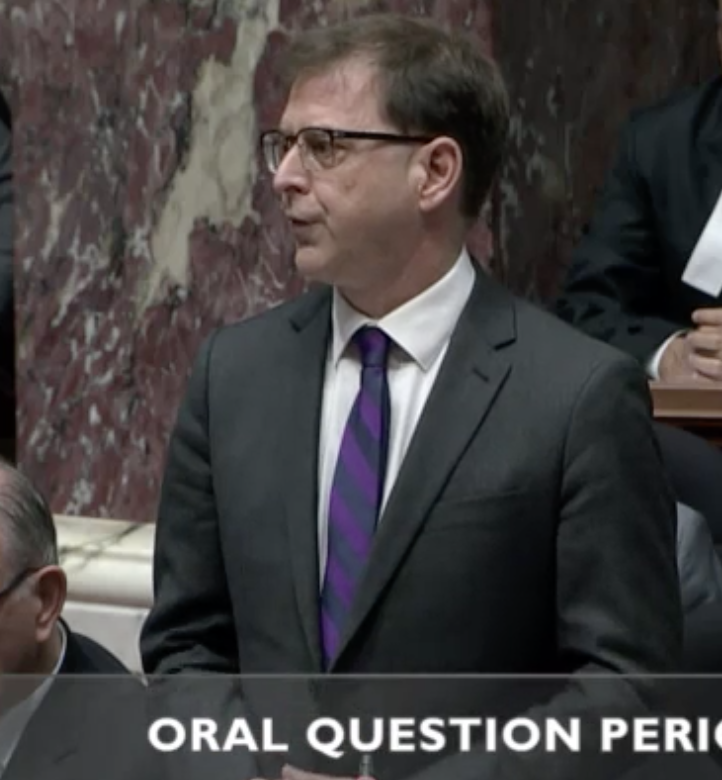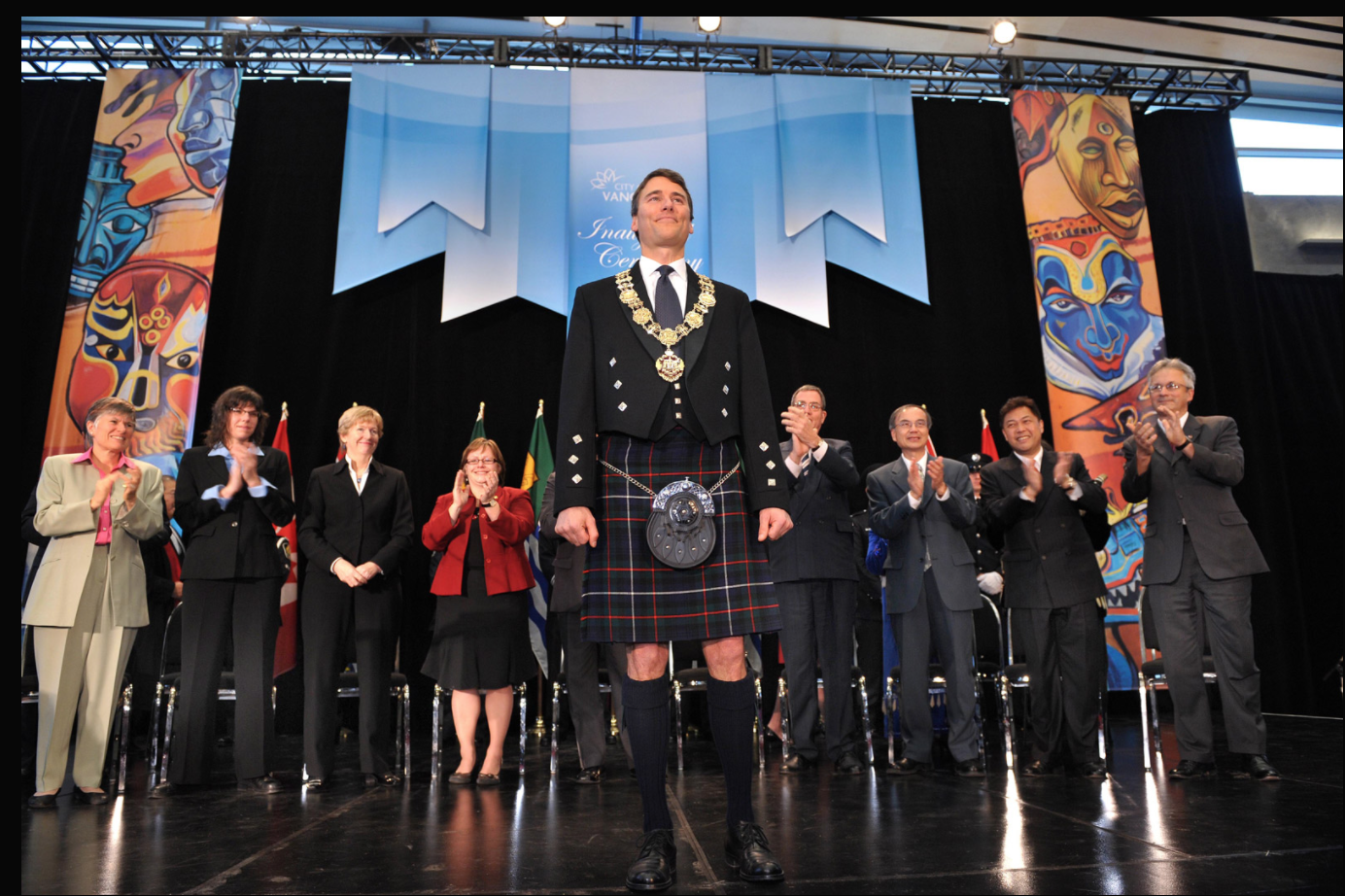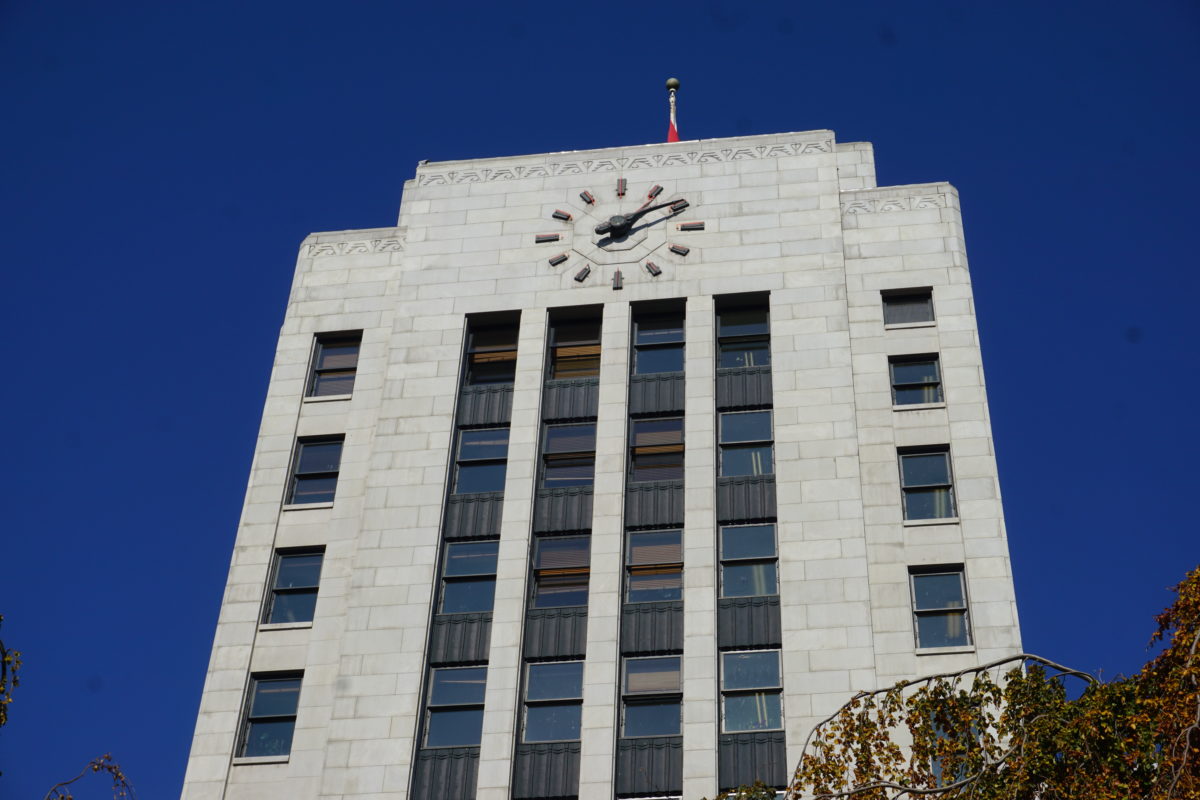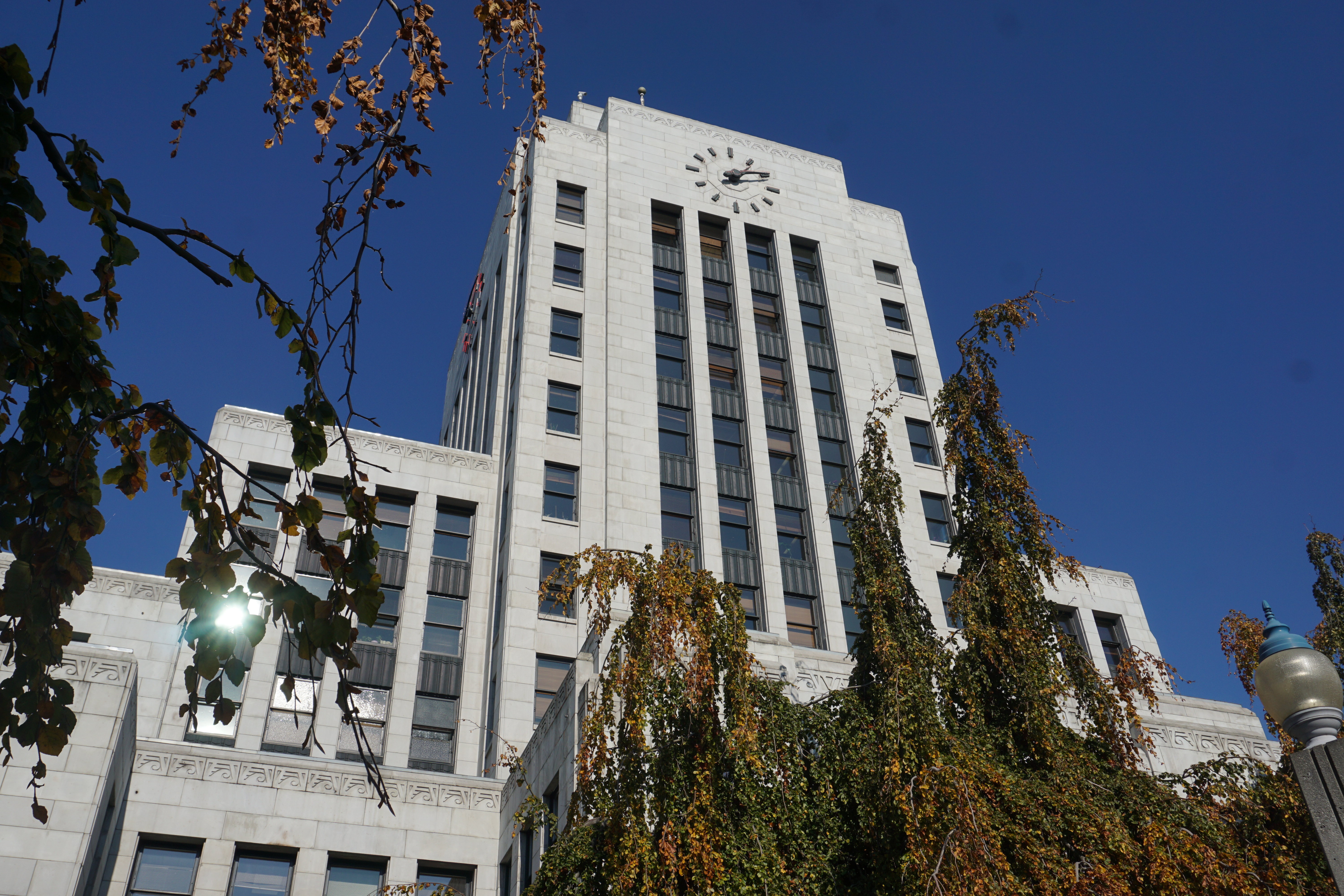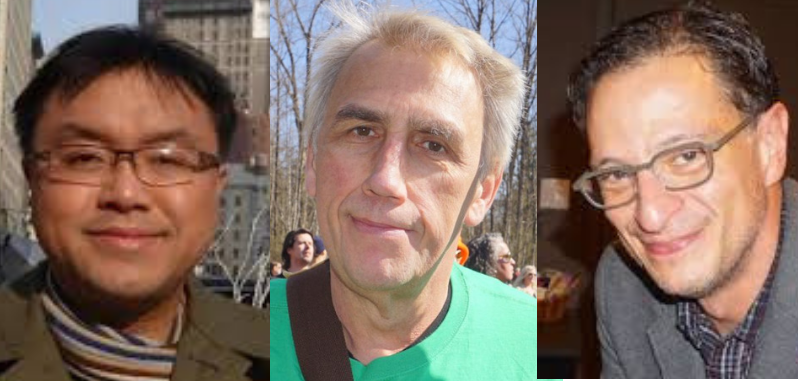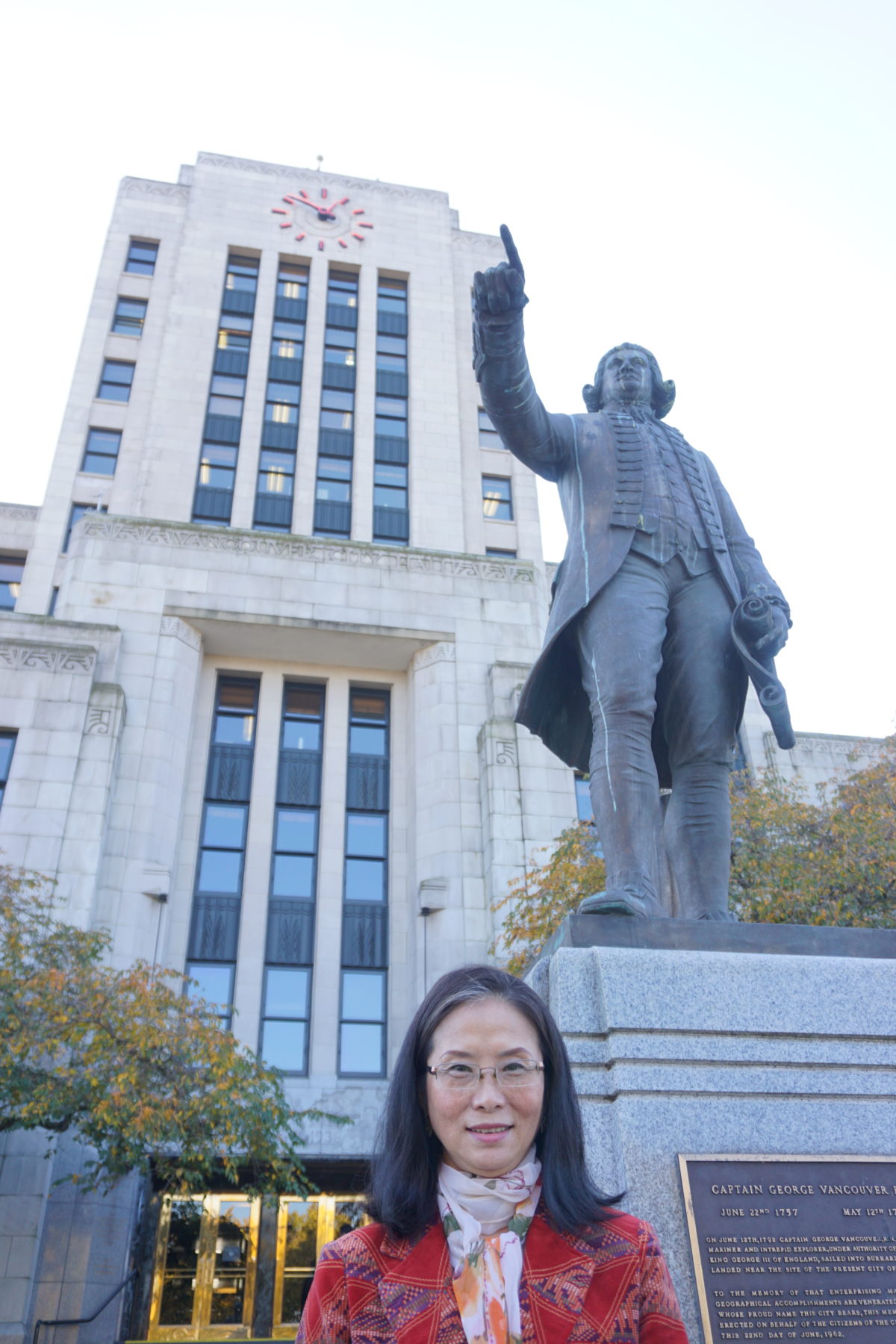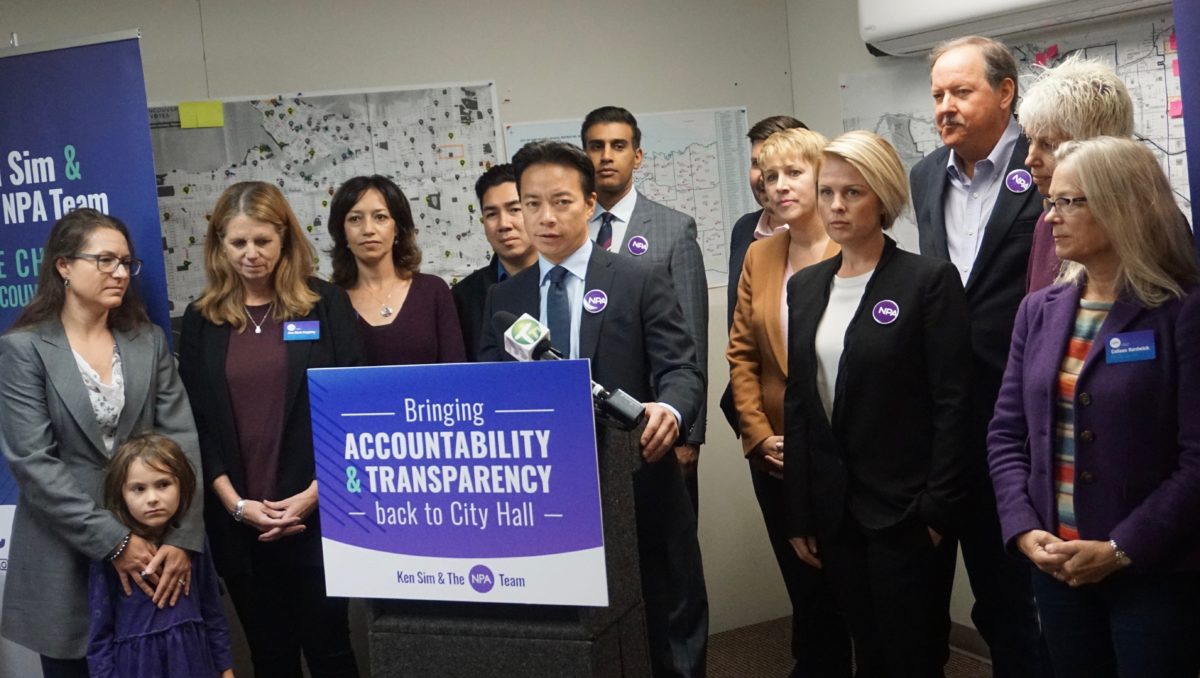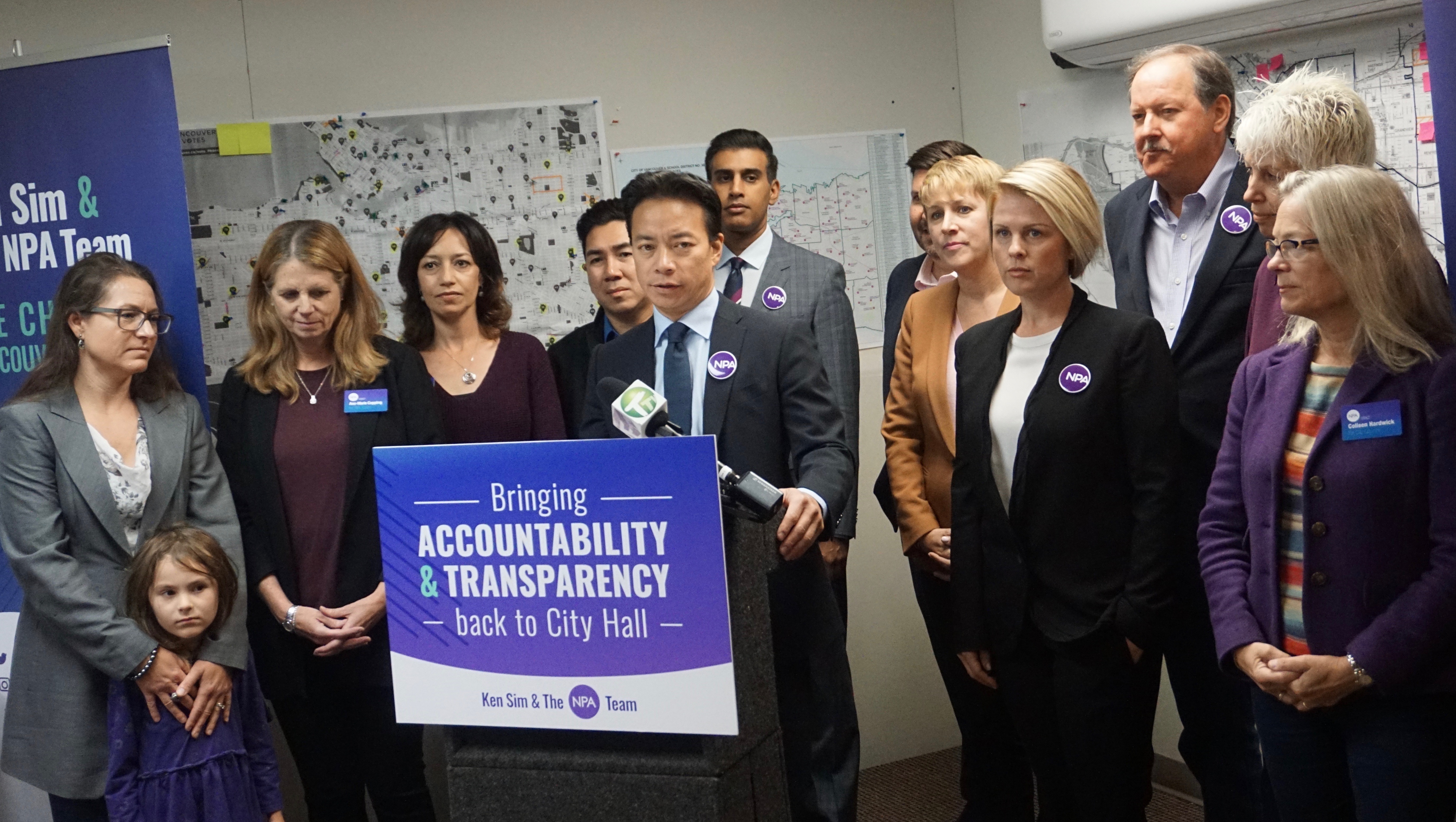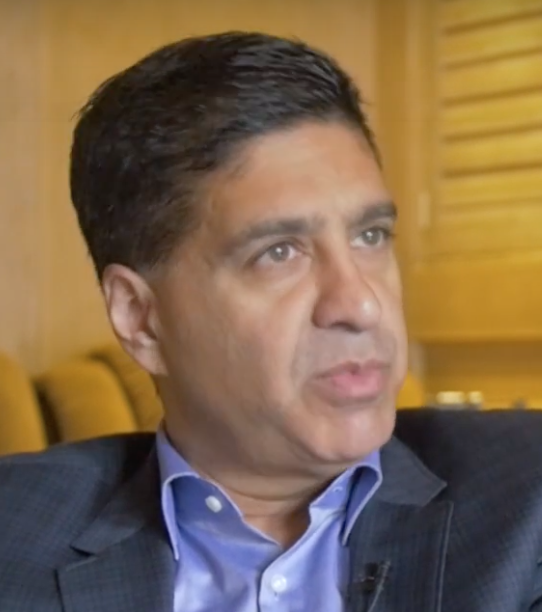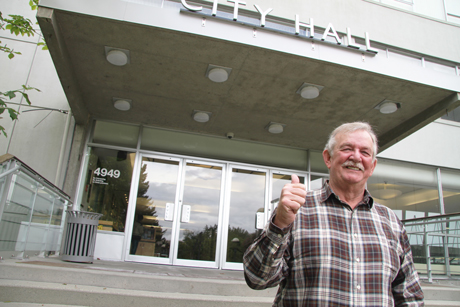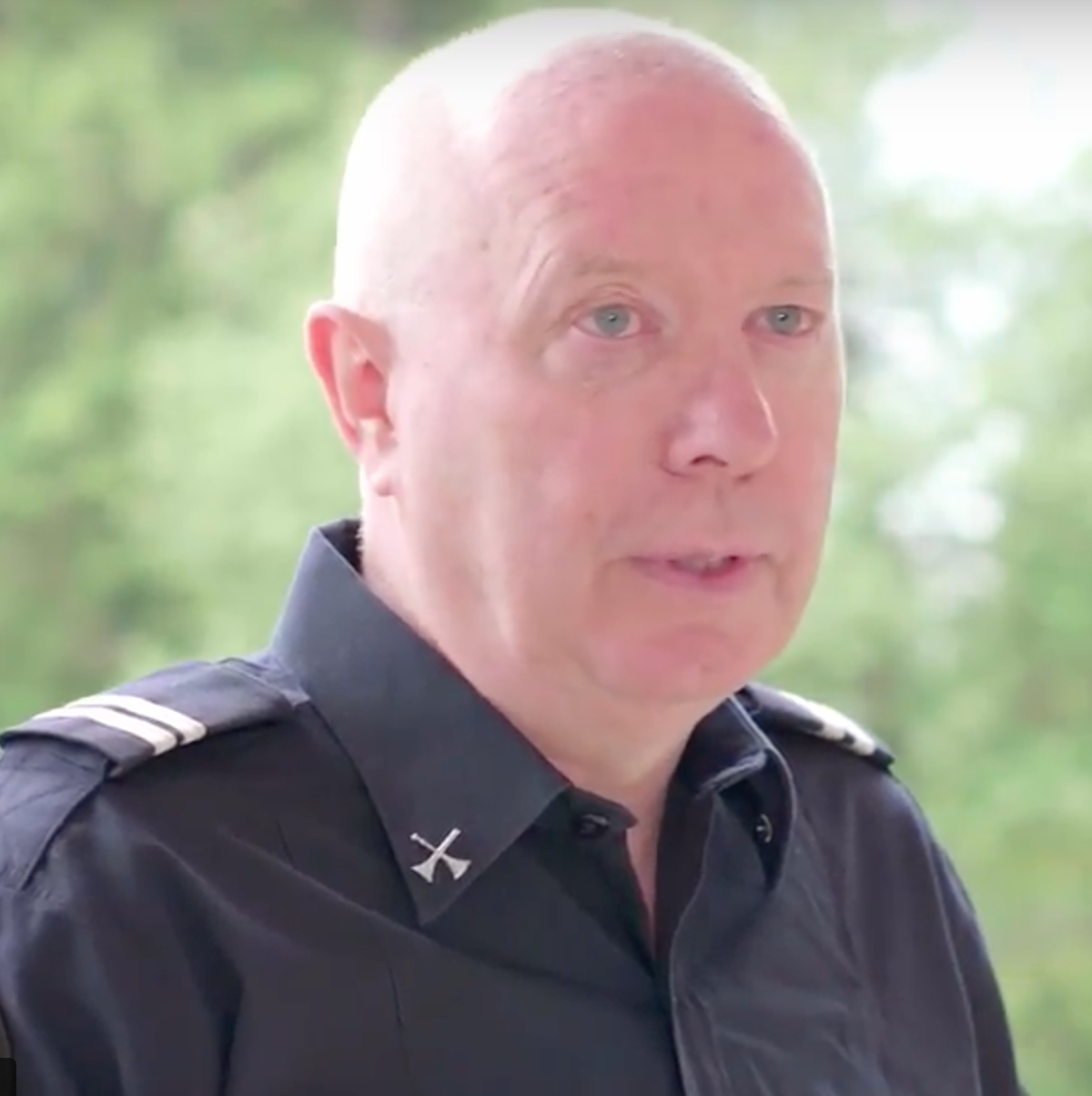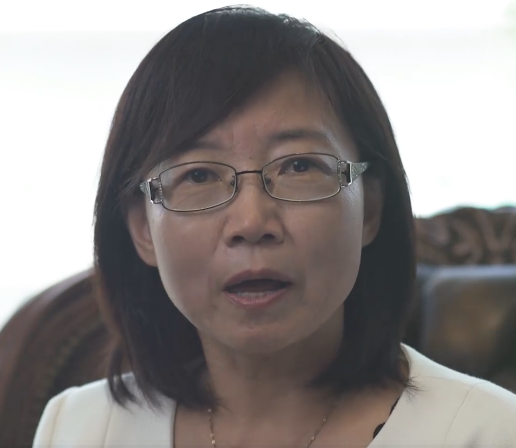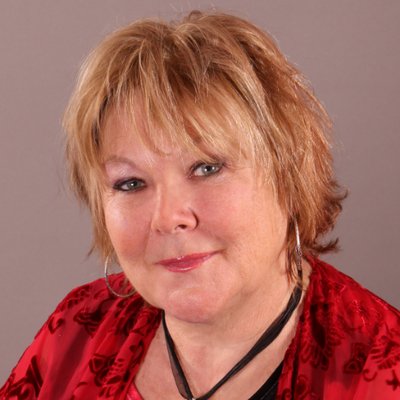Bob Mackin
British Columbia’s 2018 municipal elections will go down in history as the nastiest yet.
In Victoria, the fireworks weren’t between Mike “The Lobbyist” Geoghegan and Mayor Lisa “Statue Stasher” Helps. Instead, Geoghegan’s camp complained to the Law Society of B.C. about rival Stephen Hammond for allegedly paying a fraudster, who is wanted by Victoria Police, to defame Geoghegan on Facebook. Hammond denied the allegations.
New West Progressives’ leader Daniel Fontaine complained to the Office of the Information and Privacy Commissioner about an apparent Personal Information Privacy Act breach by the band of incumbents.
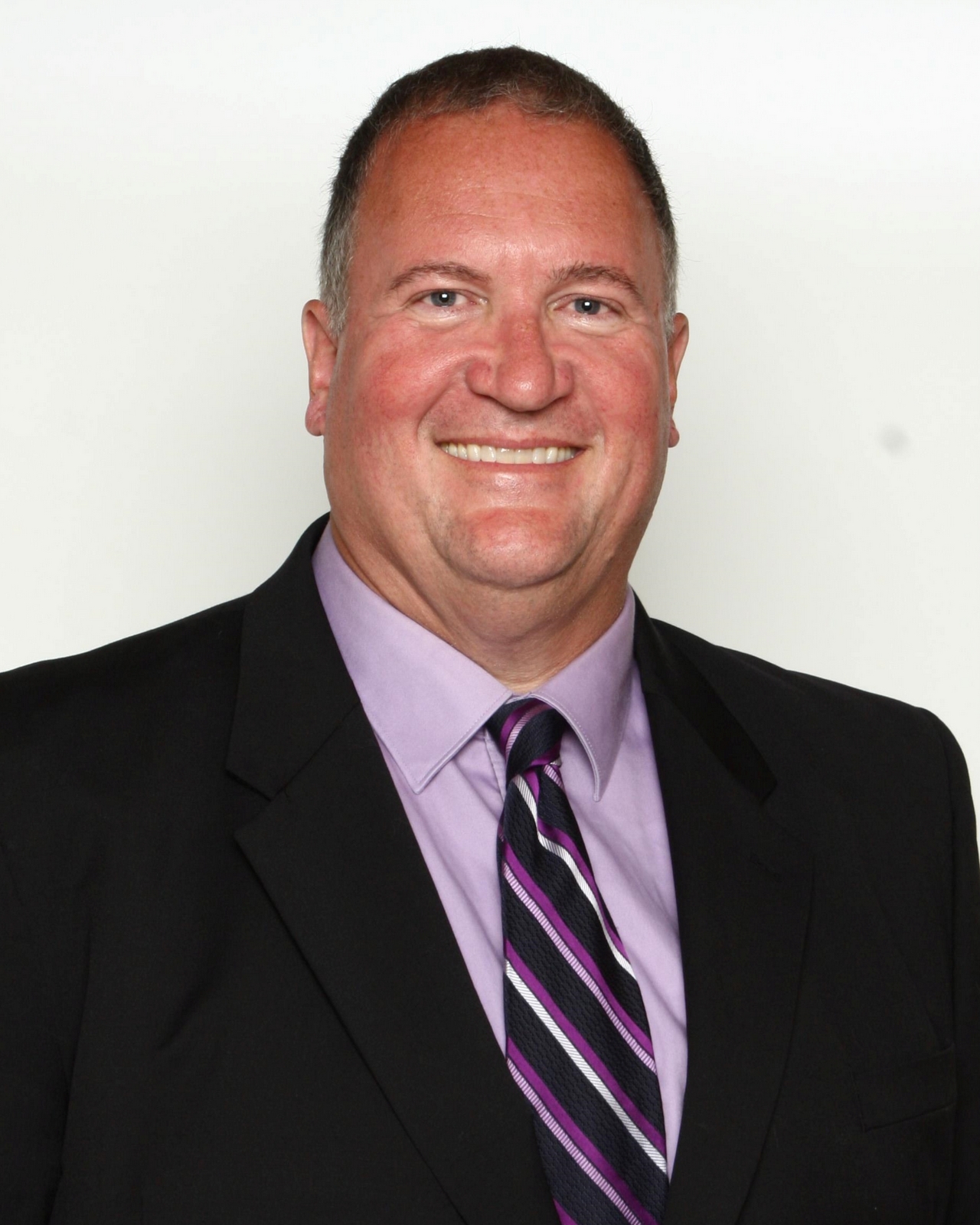
Michael Geoghegan
Mayor Jonathan X. Cote waved a magic wand and declared members of his slate to be independents. That meant they were able to raise more money individually than as a member of a party, under the new campaign finance regime. Fontaine complained that “Team Cote” candidates showed up in pairs, often with an NDP MP or MLA, to knock on doors, and were sharing voter information.
“This should be no surprise as they have all been endorsed by the powerful New Westminster District Labour Council, big supporters of the NDP party,” Fontaine wrote on his blog.
OIPC told Fontaine: “If an independent candidate wishes to collect personal information and disclose it to another candidate, they must obtain consent from the individual.”
Late in the campaign, CUPE B.C. complained to Elections BC that B.C. Care Providers radio ads, starring CEO Fontaine, were election advertising in the broadest sense, because the ads helped boost Fontaine’s profile at the same time as the unrelated election. It will be up to the regulator to decide whether the complaint was, as Fontaine said, frivolous.
New Westminster city hall chose to buy newspaper ads rather than send cards to every address in the Royal City. Fontaine said that was a form of voter suppression. Campaigns in North Vancouver City and Richmond raised eyebrows for sending mail-outs that were designed to look like official communication from city hall.
North Vancouver City Hall referred the matter to Elections BC, which ruled the envelopes containing candidate flyers for mayoral hopeful Guy Heywood and others were not illegal. Registered third-parties like Vancouver and District Labour Council and CUPE B.C. sent postcards numbering in the six figures containing lists of endorsed candidates throughout the region.
Vancouver parties — except for Coalition Vancouver and Vancouver 1st — released their lists of donors. The NPA led them all with more than $830,000. It was a different story in Surrey, where the three main parties kept their lists under wraps. Meanwhile, two persons of interest could be charged under the Criminal Code or Local Government Act related to the Surrey RCMP’s investigation into voter fraud. The Wake Up Surrey anti-crime group alleged vote-buying.
The Surrey story was quickly eclipsed by the Richmond WeChat vote-buying scandal, which was run out of an expats society with links to the Communist Party of China and its United Front foreign influence program. On election eve, Richmond RCMP said it had insufficient evidence to lay charges, but its probe was ongoing.
Coun. Hector Bremner feigned ignorance about who was behind a billboard and Facebook campaign that ended before the Sept. 22 start to the election period. The Globe and Mail eventually revealed that Peter Wall, the prominent developer behind Vision Vancouver and BC Liberals, spent $85,000 and even hired a former BC Liberal caucus aide, Micah Haince, to run the campaign.

Graphics from the Peter Wall-financed Facebook campaign.
The pro-Bremner Vancouverites for Affordable Housing Facebook group was removed by the social media company, just as an anti-Ken Sim group that made baseless allegations against the leader of the NPA, which earlier rejected Bremner’s candidacy. Haince did not respond to theBreaker’s query.
When Bremner released his list of donors for his new Yes Vancouver party, the names of Wall’s ex-wife, daughter, grandson and cousin were all there at the $1,200 maximum, each.
The Vancouver campaign was so dull. (How dull was it?) It was so dull, that campaign finance reform meant no TV attack ads and the only major fireworks occurred between Kennedy Stewart’s campaign manager and a Ken Sim campaign aide.
“When you say that there are organizers paid by unions, working on his campaign, you are libelling him,” Stewart manager Neil Monckton said, on a phone call recorded and released by the NPA’s Mike Jagger.
“Because you’re saying that’s untrue?” said Jagger, who drew attention to Stewart’s in-kind union support on social media.
“Mike, I’m not going to fuck around anymore here,” Monckton shot back. “Just take it down, or I’m going to have to follow up with a stronger, you know, kind of approach.”
The Stewart campaign went into election day under investigation by the city’s election office for holding a news conference in the city hall precinct on Oct. 16, during the advance voting station’s hours at city hall. Any campaign activity with 100 metres of a voting station is punishable by a maximum $5,000 fine and/or a year in jail. Monckton said the event was 108.74 metres from the door.
An NPA supporter was seen circling the parking lot of the Ross Street Sikh Temple voting station, in late afternoon of election day, with a pickup truck plastered with signs promoting Sim, city council candidate David Grewal and Park Board candidate Pall Beesla. theBreaker obtained a video clip shot by a concerned citizen, who is heard saying that NPA supporters were also distributing leaflets with the candidates’ names.
theBreaker reported that CUPE Local 15, the union representing city hall workers, offered to reimburse workers that took time-off to join one of the Vancouver and District Labour Council-endorsed campaigns — including that of mayoral candidate Kennedy Stewart.
“Everyone — unions and business groups and property developers — knows very well what the spirit of the law was meant to be and they should be rising to the spirit of the law, not plummeting to the letter of the law,” said IntegrityBC’s Dermod Travis.
BC Liberal Todd Stone reminded NDP Municipal Affairs Minister Selina Robinson in Question Period on Oct. 18 that the BC Liberals warned her about “the gaping loophole that she left in local campaign financing legislation last fall.”
Specifically, Stone said, no limits on third-party contributions, which made a mockery of local elections across the province.
“Now we learn that the NDP’s friends and insiders are exploiting this loophole, just as the minister most likely intended — in Vancouver, Burnaby, New Westminster, the Tri-Cities and the North Shore — all over the Lower Mainland, on behalf of 26 union-endorsed candidates.”
Robinson predictably reminded the Liberals that, when they were in office, there were no rules about the size or source of campaign donations.
“I want to remind the members that, under their watch, there was a $943,000 contribution — this was in local elections — and they absolutely refused to do anything about it,” Robinson said, referring to Rob Macdonald’s big donation to the NPA in 2011.
“I think it’s important to also recognize that the third-party rules were introduced by the previous government back in 2015. This is their legislation.”
Stone spoke of internal VDLC email that reveals four full-time staff, 100,000 voter cards, $10,000 reimbursements per union staff campaign volunteer, direct mail, door-to-door canvassing, phone bank calls, data collection and sharing, and even voter identification and get-out-the-vote activities, “all of which doesn’t have to be disclosed as third-party contributions.”
Former Finance Minister Mike de Jong got up and asked whether the NDP itself was giving support to certain candidates.
“Well, long-time NDP supporter Derek Corrigan, the baron of Burnaby, is in trouble,” de Jong said. “He’s facing a genuine challenge from a professional firefighter, Michael Hurley. Again I ask the minister: will she assure this House and British Columbians today that her party isn’t using her loophole to help her friend Derek Corrigan?”
“That sounds a bit like an accusation,” Robinson said. “That’s a very serious accusation. So I’m a little bit offended, actually, I have to say, by that intended accusation, which is completely inappropriate. Elections B.C. will certainly be taking a look to make sure that everyone has followed the rules.”
Coincidentally, Stone and de Jong are two BC Liberals who have used the services of Aggregate IQ, the Victoria social media political consultancy that is under investigation related to digital dirty tricks in Canada, the U.K. and U.S.
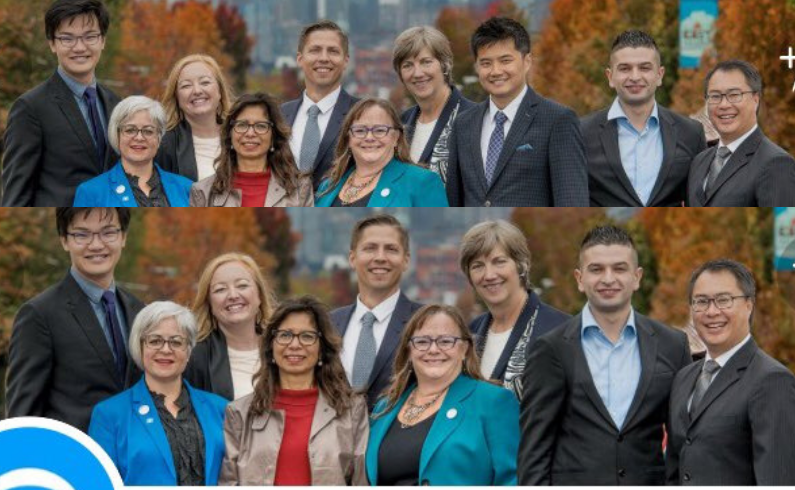
Wei Qiao Zhang was photoshopped out of the Vision team photo (Twitter)
The Toronto company that blew the Calgary election prediction in 2017 did an early September poll that omitted several candidates and parties. But Mainstreet Research included the name of a Vision Vancouver supporter’s baby. Its shorter, early October poll also included errors by omission. It wasn’t released publicly.
OneCity’s Brandon Yan convinced civic election officials to place a name in Chinese characters beside his name on the ballot, despite his filings indicating his full name was Brandon Oliver Yan. Coalition Vancouver school board candidates Ken Denike and Sophia Woo filed their court challenge in the B.C. Supreme Court, rather than the Provincial Court.
Early in the final week of candidate registration, Vision Vancouver’s Ian Campbell dropped out when it was revealed that he had not told the party of a stayed charge of domestic assault from 2010. So ended a candidacy that was questioned from the start. The Squamish Nation development dealmaker had been perceived as too close to the Aquilinis and too aggressive on plans to build towers on band land in Point Grey.
On the last day of the campaign, city council candidate Wei Qiao Zhang’s Vision endorsement was withdrawn by the party for an unexplained misconduct that allegedly occurred recently. The party, whose only city council incumbent is Heather Deal, photoshopped Zhang from its team photo, duplicated school board candidate Aaron Leung’s right arm and stuck it onto city council candidate Diego Cardona. Vision trickery, right to the bitter end!
Documents emerged about Sim’s April 1989 Pender Street Mustang car crash. Sim had been cited for dangerous driving, but pleaded guilty to failing to stop for a police officer. He was out for a night with his buddies, including his rival for the NPA leadership, Glen Chernen. Sim cleverly said that his 18-year-old self was not prepared to be mayor. Less attention was paid to Cardona’s unimpressive driving record than Coalition Vancouver mayoral candidate Wai Young and her distracted driving ticket. Her make-up equipment apparently resembled a mobile phone.
Derek Palaschuk, a lawyer for Coalition Vancouver city council candidate Chernen, unsuccessfully applied to force deputy election official Janice Lowe’s removal from duty. Palaschuk had earlier registered as a third-party election sponsor with Elections BC.
Lowe’s husband is former city hall real estate director Mike Flanigan. Chernen had complained to the RCMP about alleged sweetheart land deals with Vision Vancouver-friendly developers during Flanigan’s time in the department, such as the controversial Brenhill land swap near Yaletown.
Chief Election Officer Rosemary Hagiwara said in reply that Lowe swore a declaration to faithfully and impartially perform the duties of her office. She would not be stepping down.
Meanwhile, back in Richmond, the city’s top election official, city clerk David Weber, issued a memo to candidates and slates during the middle of election day after reports of misbehaviour by scrutineers.
Some scrutineers had taken photographs and recorded personal information in voting stations. “The usual processing of voters by election staff must not be impeded in any way by scrutineers wishing to examine the voting books,” Weber wrote.
Support theBreaker.news for as low as $2 a month on Patreon. Find out how. Click here.
Bob Mackin
British Columbia's 2018 municipal elections will







